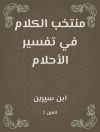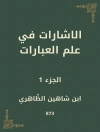What is existential anthropology, and how would you define it? What has been gained by using existential perspectives in your fieldwork and writing? Editors Michael Jackson and Albert Piette each invited anthropologists on both sides of the Atlantic to address these questions and explore how various approaches to the human condition might be brought together on the levels of method and of theory. Both editors also bring their own perspective: while Jackson has drawn on phenomenology, deploying the concepts of intersubjectivity, lifeworld, experience, existential mobility, and event, Piette has drawn on Heidegger’s Dasein-analysis, and developed a phenomenographical method for the observation and description of human beings in their singularity and ever-changing situations.
विषयसूची
Introduction: Anthropology and the Existential Turn
Michael Jackson and Albert Piette
Chapter 1. Continuities of Change: Conversion and Convertibility in Northern Mozambique
Devaka Premawardhana
Chapter 2. Both/And
Michael Lambek
Chapter 3. Reading Bruno Latour in Bahia
Mattijs Van de Port
Chapter 4. The Station Hustle: Ghanaian Migration Brokerage in a Disjointed World
Hans Lucht
Chapter 5. Mobility and Immobility in the Life of an Amputee
Sónia Silva
Chapter 6. Existential Aporias and the Precariousness of Being
Michael Jackson
Chapter 7. Existence, Minimality and Believing
Albert Piette
Chapter 8. Considering Human Existence: An existential reading of Michael Jackson and Albert Piette.
Laurent Denizeau
Notes on Contributors
Index
लेखक के बारे में
Michael Jackson is Distinguished Professor of World Religions at Harvard Divinity School. He has done fieldwork among the Kuranko of Sierra Leone, the Warlpiri of Central Australia, the Kuku-Yalanji of Cape York Peninsula, and with African migrants in Europe. He is the author of over thirty books of ethnography, poetry, and fiction.












